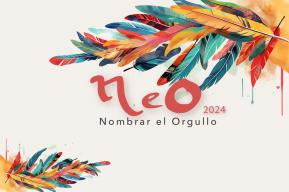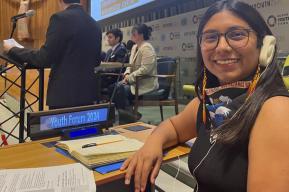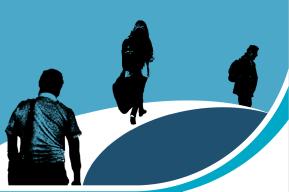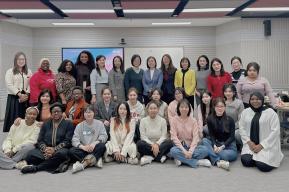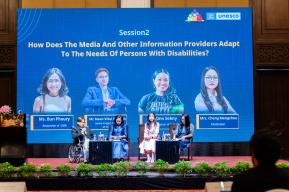News
“Women journalists are not victims – we are heroes” Affirm Afghan Women Journalists at the Commission on the Status of Women

On the occasion of the 68th Commission on the Status of Women, International Media Support (IMS), UNESCO, UN Women, the European Union, the Ministry of Foreign Affairs of Denmark and Swedish International Development Cooperation Agency (SIDA) co-organized a side event, on 12 March 2024, shedding light on the situation of women journalists inside Afghanistan.
Marie Bjerre, Minister of Digitalization and Gender Equality of Denmark, inaugurated the event by honouring the courage of Afghan women journalists and acknowledging their daily struggle against oppression in producing media content.
Faranaz Forotan, editor at KAAJ media and former journalist at TOLO News, said “In Afghanistan, being a female journalist is an endless act of bravery. Women journalists have changed the narrative of journalism in Afghanistan and today, with the least resources, they strive to preserve and nurture freedom of expression in Afghanistan. They, without a face, name or identity are still striving to light a candle in the darkness”.
Prior to the event, IMS conducted interviews with a number of women journalists working within the country, highlighting their courage and daunting challenges they face.
Wahida Faizi, Gender Advisor at IMS and a journalist herself who had to leave Afghanistan, underlined that despite the severe restrictions, “women journalists are not victims, we are heroes”. They persist in their work, navigating narrow reporting spaces with tremendous bravery and resilience.
The speakers reiterated the importance of sustaining support for the women of Afghanistan, echoing sentiments of hope despite adversities. Lima Anwari, a youth and women’s rights advocate, quoted a poem: “The bewildered flower will bloom in a spring of freedom. I will sing a song of freedom over and over again”.
Zaki Daryabi, Publisher of Etilaat Rooz and Kabul Now emphasized the need to continue providing employment opportunities and mentorship to women journalists both inside and outside of Afghanistan.
Representatives from UNESCO, the European Union, UN Women and SIDA stressed their continued commitment to supporting the women journalists of Afghanistan, including long-term and flexible support, as well as the importance of maintaining international pressure on the de facto authorities to reverse repressive policies against women and girls in Afghanistan.
The side event’s panelists put forth recommendations for the international community to support Afghan women journalists, including:
- Maintaining international pressure for the reinstatement of women’s full and equal human rights, including freedom of expression, movement and access to education.
- Providing training, mentorship and internships to Afghan women journalists, including remotely, to many of the experienced media workers who have gone into exile. Capacity-building should cover journalistic skills as well as digital, physical and psychological safety and mental health support.
- Ensuring employment opportunities – including at decision-making level – and financial support for female media workers, enabling their meaningful participation and empowerment.
- Supporting women-led media entities and those providing job opportunities to women journalists.
UNESCO, under the EU funded project “Support to Afghan Media Resilience to Foster Peace and Security,” has provided capacity-building to over two hundred women journalists and is currently supporting seven women-led radio stations across the country with vital resources. Additionally, over 30 media outlets receive assistance under the project to produce independent humanitarian, lifesaving and educational content, with a particular focus on Afghan women and girls. The Organization remains committed to advocating for the safety of Afghan women journalists and their full, meaningful participation in media.


